



Apricots 200 Grams

Apricots 200 Grams
₹290.00 + GST
₹290.00 + GST
Apricots are a delicious and nutritious fruit packed with essential vitamins and antioxidants. Rich in vitamin A, vitamin C, and dietary fiber, apricots promote healthy skin, support eye health, aid digestion, and boost immune function. Their sweet, tangy flavor makes them a versatile addition to both sweet and savory dishes, whether enjoyed fresh or dried. Incorporating apricots into your diet can enhance your overall well-being, making them a valuable and tasty choice for a healthy lifestyle.
- Description
- Reviews (0)
Description
The Ultimate Guide to Apricots: Nutritional Benefits and Uses of Apricots and Apricot Seeds
Apricots are small, golden-orange fruits that pack a punch of flavor and nutrition. Revered for their sweet and tangy taste, apricots have been enjoyed for centuries in various forms, including fresh, dried, and as a key ingredient in a range of culinary creations. Beyond their delightful taste, apricots are loaded with vitamins, minerals, and antioxidants, making them a powerhouse of nutrition. This article delves into the benefits of apricots and apricot seeds, exploring how these fruits can contribute to a healthy lifestyle.
1. What Are Apricots?
Apricots, scientifically known as Prunus armeniaca, are stone fruits that belong to the same family as peaches, plums, and cherries. These fruits are typically small, with a velvety skin that can range in color from pale yellow to deep orange. The flesh of the apricot is juicy and sweet, with a slightly tart undertone that makes it a versatile ingredient in both sweet and savory dishes.
Apricots are commonly enjoyed fresh during their peak season in late spring and early summer. However, they are also popular in dried form, which makes them available year-round. Dried apricots retain most of their nutrients and have a concentrated sweetness that makes them a convenient snack or addition to various recipes.
2. Nutritional Profile of Apricots
Apricots are low in calories but high in essential vitamins, minerals, and antioxidants. Here’s a breakdown of the key nutrients found in apricots:
2.1 Vitamins
- Vitamin A: Apricots are rich in beta-carotene, which the body converts into vitamin A. This vitamin is crucial for maintaining healthy vision, immune function, and skin health.
- Vitamin C: Apricots provide a good amount of vitamin C, an antioxidant that helps protect the body against free radical damage and supports the immune system.
2.2 Minerals
- Potassium: This essential mineral helps regulate fluid balance, muscle contractions, and nerve signals. Apricots are an excellent source of potassium, which is important for maintaining heart health.
- Iron: While not as abundant as in other foods, apricots still contribute to your daily iron intake, which is necessary for producing hemoglobin and transporting oxygen throughout the body.
2.3 Antioxidants
- Flavonoids: Apricots are rich in flavonoids, plant compounds with potent antioxidant properties. These antioxidants help reduce inflammation and protect against chronic diseases.
2.4 Dietary Fiber
Apricots are a good source of dietary fiber, particularly when consumed dried. Fiber aids in digestion, helps maintain healthy cholesterol levels, and supports weight management by promoting a feeling of fullness.
3. Apricot Benefits: Why You Should Include Apricots in Your Diet
Incorporating apricots into your diet can offer a wide range of health benefits. Here are some of the key advantages of consuming apricots regularly:
3.1 Promotes Eye Health
The high levels of vitamin A and beta-carotene in apricots make them particularly beneficial for eye health. Vitamin A is essential for maintaining the health of the retina and preventing conditions such as night blindness and age-related macular degeneration. The antioxidants in apricots also help protect the eyes from oxidative stress and damage caused by free radicals.
3.2 Supports Skin Health
Apricots are packed with vitamins A and C, both of which are important for maintaining healthy, glowing skin. Vitamin C plays a crucial role in collagen production, which helps keep the skin firm and youthful. Meanwhile, the antioxidants in apricots help protect the skin from damage caused by UV rays and environmental pollutants.
3.3 Boosts Digestive Health
The dietary fiber in apricots aids in digestion by adding bulk to the stool, which helps prevent constipation and promotes regular bowel movements. Additionally, the fiber in apricots supports the growth of healthy gut bacteria, which is essential for overall digestive health.
3.4 Enhances Heart Health
Apricots contribute to heart health in several ways. The potassium content in apricots helps regulate blood pressure by balancing sodium levels in the body, reducing the risk of hypertension. The fiber in apricots also helps lower LDL (bad) cholesterol levels, which can reduce the risk of cardiovascular diseases.
3.5 Supports Immune Function
The vitamin C and antioxidants in apricots play a vital role in supporting the immune system. Regular consumption of apricots can help strengthen the body’s defenses against infections and diseases, keeping you healthier year-round.
3.6 Aids in Weight Management
Apricots are low in calories and high in fiber, making them an excellent snack for those looking to manage their weight. The fiber in apricots helps keep you feeling full, reducing the likelihood of overeating and aiding in weight loss efforts.
3.7 Bone Health
Apricots contain a range of minerals, including calcium, potassium, and magnesium, which are important for maintaining strong and healthy bones. Regular consumption of apricots can help prevent bone-related conditions such as osteoporosis.
4. Apricot Seeds: A Nutritional Powerhouse
Apricot seeds, also known as apricot kernels, are the seeds found inside the stone of the apricot fruit. These seeds have gained popularity in recent years for their potential health benefits, although they should be consumed with caution due to the presence of amygdalin, a compound that can release cyanide when metabolized.
4.1 Nutritional Content of Apricot Seeds
Apricot seeds are rich in essential fatty acids, proteins, and fiber. They also contain vitamins and minerals, including vitamin E, magnesium, and potassium. Additionally, apricot seeds are a source of antioxidants, which help protect the body from oxidative stress and inflammation.
4.2 Potential Health Benefits of Apricot Seeds
While more research is needed to fully understand the health benefits of apricot seeds, some studies suggest that they may offer the following advantages:
4.2.1 Antioxidant Properties
Apricot seeds contain antioxidants such as vitamin E, which help protect cells from damage caused by free radicals. Antioxidants play a crucial role in reducing the risk of chronic diseases and promoting overall health.
4.2.2 Skin Health
The vitamin E in apricot seeds is beneficial for skin health, helping to moisturize and protect the skin from environmental damage. Apricot seed oil, derived from the kernels, is commonly used in skincare products for its emollient properties.
4.2.3 Digestive Health
Apricot seeds are a good source of dietary fiber, which supports digestive health by promoting regular bowel movements and preventing constipation. The fiber in apricot seeds also helps maintain healthy cholesterol levels and supports weight management.
4.3 Caution When Consuming Apricot Seeds
It’s important to note that apricot seeds contain amygdalin, which can convert to cyanide in the body. Consuming large amounts of apricot seeds can be toxic, so it’s essential to consume them in moderation. If you’re considering adding apricot seeds to your diet, it’s best to consult with a healthcare professional first.
5. How to Incorporate Apricots and Apricot Seeds into Your Diet
Apricots and apricot seeds can be enjoyed in a variety of ways, making it easy to incorporate their nutritional benefits into your diet. Here are some ideas:
5.1 Fresh Apricots
- Snack: Enjoy fresh apricots as a convenient, on-the-go snack.
- Salads: Add sliced apricots to salads for a burst of sweetness and flavor.
- Smoothies: Blend fresh apricots into smoothies for a nutrient-rich, refreshing drink.
5.2 Dried Apricots
- Trail Mix: Combine dried apricots with nuts, seeds, and dark chocolate for a healthy trail mix.
- Baking: Use dried apricots in muffins, cookies, and cakes for added sweetness and texture.
- Cereal: Add chopped dried apricots to your morning cereal or oatmeal for a nutritious start to the day.
5.3 Apricot Seeds
- Smoothies: Add a small amount of ground apricot seeds to smoothies for a boost of fiber and nutrients.
- Salad Toppings: Sprinkle crushed apricot seeds on salads for added crunch and flavor.
- Baking: Incorporate ground apricot seeds into baked goods like bread, muffins, and granola bars.
5.4 Apricot Seed Oil
- Skincare: Use apricot seed oil as a natural moisturizer for your skin or as a base for DIY skincare products.
- Hair Care: Apply apricot seed oil to your hair and scalp to nourish and strengthen your hair.
6. The Role of Apricots and Apricot Seeds in Traditional Medicine
Apricots and their seeds have been used in traditional medicine for centuries, particularly in Chinese and Ayurvedic practices. In traditional Chinese medicine, apricot seeds are believed to help relieve coughs, reduce inflammation, and improve respiratory health. In Ayurveda, apricots are used to balance the doshas and promote overall well-being.
7. Conclusion: Embrace the Power of Apricots and Apricot Seeds
Apricots are a delicious and nutritious fruit that offers a wide range of health benefits. From promoting eye health and supporting digestion to boosting immunity and aiding in weight management, apricots are a versatile fruit that can enhance your overall health and well-being. Apricot seeds, while requiring cautious consumption, alsoThe Ultimate Guide to Apricots: Benefits, Nutrition, and the Power of Apricot Seeds
Apricots are small, golden fruits celebrated not just for their delightful taste but also for their rich nutritional benefits. This guide explores how apricots and their seeds can significantly enhance your health, focusing on key benefits like improved eye health, skin vitality, and digestive support. With high levels of vitamins A and C, fiber, and antioxidants, apricots are a powerhouse of nutrition. Apricot seeds, while nutritious, should be consumed cautiously due to amygdalin content, which can convert to cyanide.
Nutritional Profile and Benefits
Apricots are low in calories but packed with essential vitamins and minerals. Rich in vitamin A (from beta-carotene), vitamin C, potassium, and dietary fiber, apricots support various aspects of health, including eye and skin health, digestion, heart health, and immune function. Apricot seeds are also nutrient-rich, containing vitamin E, magnesium, and fiber, though they should be consumed in moderation due to their potential toxicity.
Incorporating Apricots and Apricot Seeds Into Your Diet
Fresh apricots are perfect as snacks, in salads, or smoothies. Dried apricots are ideal for trail mixes, baking, and cereals. Apricot seeds can be ground into smoothies, baked goods, or used as salad toppings, while apricot seed oil is excellent for skincare and hair care.
Conclusion
Apricots and their seeds are not only delicious but also offer numerous health benefits. By incorporating them into your diet, you can take advantage of their powerful nutritional profile and enjoy improved health and wellness. Remember to consume apricot seeds cautiously and consult a healthcare professional if necessary.
Also See: Paruppu Podi
 Apricots 200 Grams
Apricots 200 Grams





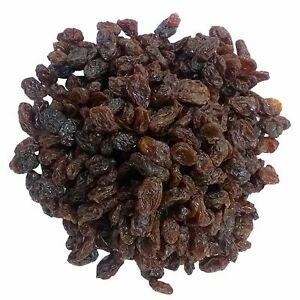



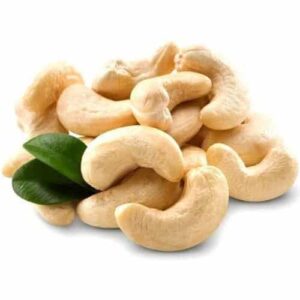
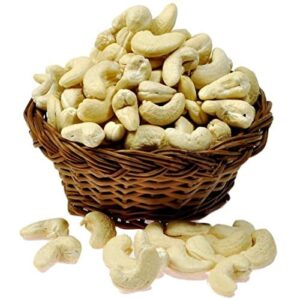




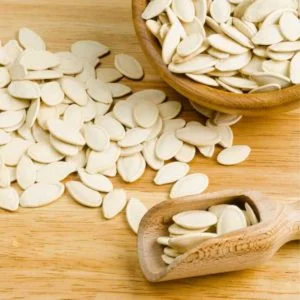
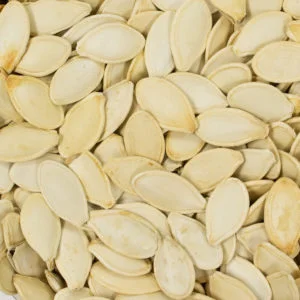

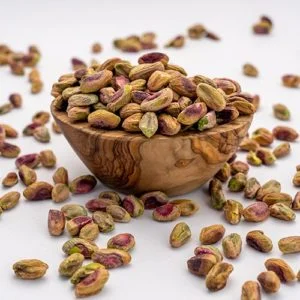
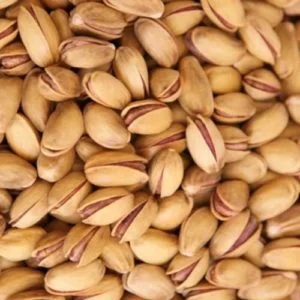
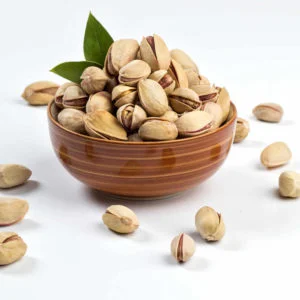


Reviews
There are no reviews yet